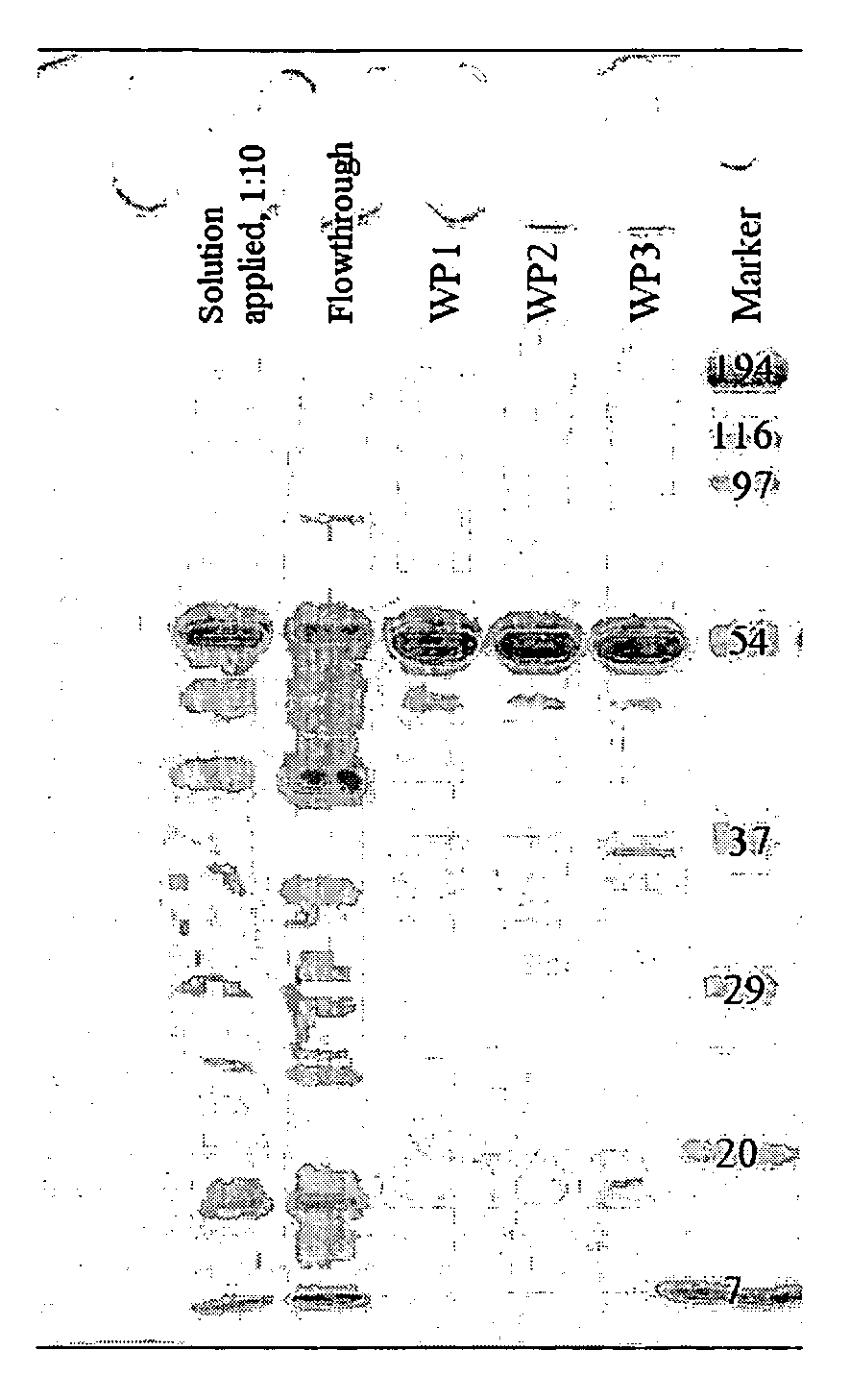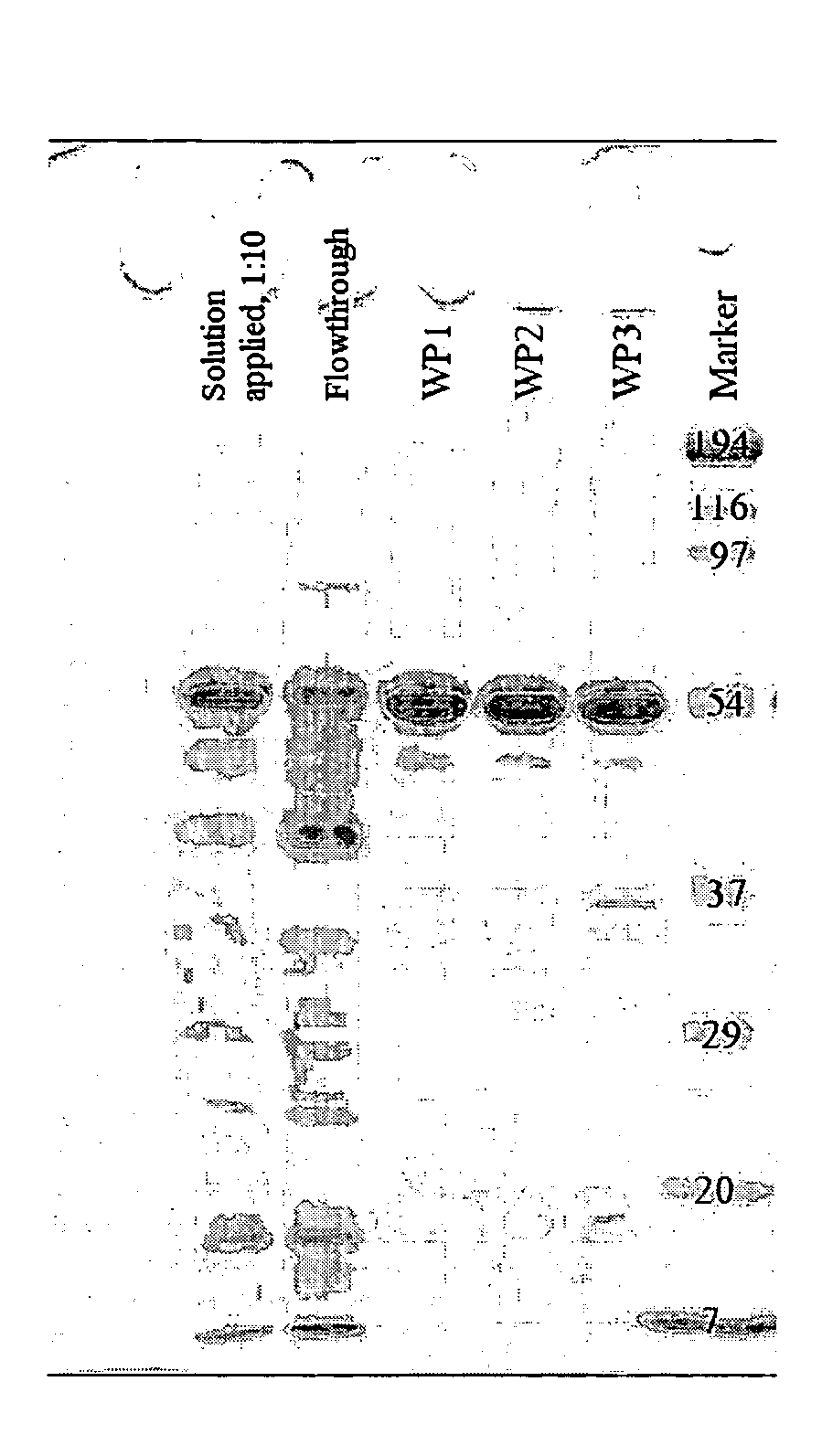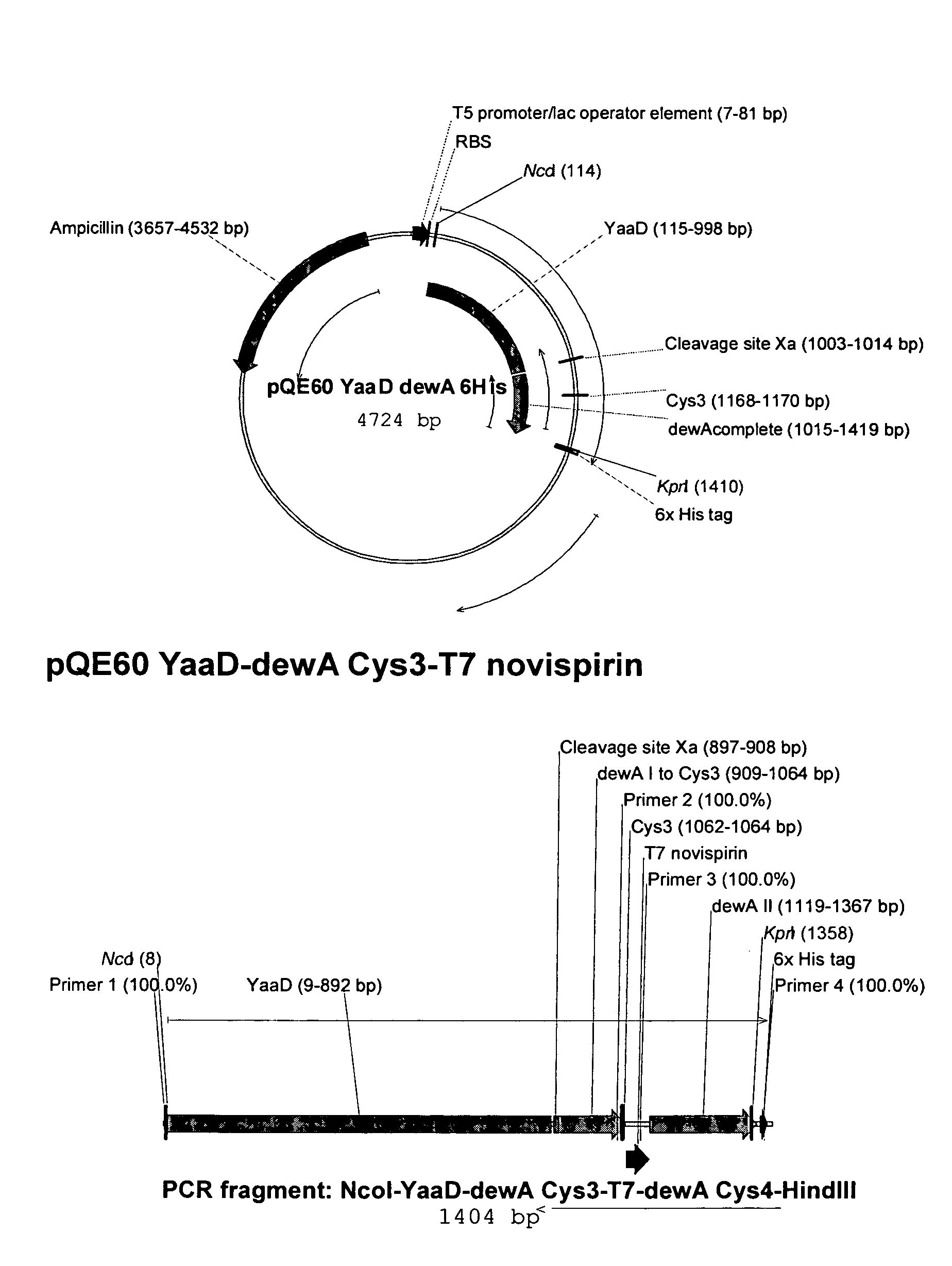Novel cysteine-depleted hydrophobin fusion proteins, their production and use thereof
a technology of fusion proteins and cysteine depletion, applied in the field of new cysteine depletion hydrophobin fusion proteins, their production and use, can solve the problems of not being able to provide hydrophobins in large amounts with the aid of genetic methods, and have not been successful up to now
- Summary
- Abstract
- Description
- Claims
- Application Information
AI Technical Summary
Benefits of technology
Problems solved by technology
Method used
Image
Examples
example 1
Preliminary Work for yaad-His6 / yaaE-His6 Cloning
[0063]A polymerase chain reaction was carried out with the aid of oligonucleotides Hal570 and Hal571 (Hal 572 / Hal 573). The template DNA used was genomic DNA from the bacterium Bacillus subtilis. The PCR fragment obtained comprised the coding sequence of the Bacillus subtilis yaaD / yaaE gene and an NcoI or a BglII restriction cleavage site at the ends. The PCR fragment was purified and cleaved with the restriction endonucleases NcoI and BglII. This DNA fragment was used as an insert and cloned into the Qiagen pQE60 vector which had previously been linearized with the restriction endonucleases NcoI and BglII. The vectors obtained in this way, pQE60YAAD#2 / pQE60YaaE#5 may be used for expressing proteins consisting of YAAD::HIS6 and, respectively, YAAE::HIS6.
Hal570:gcgcgcccatggctcaaacaggtactgaHal571:gcagatctccagccgcgttcttgcatacHal572:ggccatgggattaacaataggtgtactaggHal573:gcagatcttacaagtgccttttgcttatattcc
example 2a
Cloning of yaad-Hydrophobin DewA-His6
[0064]A polymerase chain reaction was carried out with the aid of oligonucleotides KaM 416 and KaM 417. The template DNA used was genomic DNA from the mold Aspergillus nidulans. The PCR fragment obtained comprised the coding sequence of the hydrophobin gene dewA and an N-terminal factor Xa proteinase cleavage site. The PCR fragment was purified and cleaved with the restriction endonuclease BamHI. This DNA fragment was used as an insert and cloned into the pQE60YAAD#2 vector which had previously been linearized with the restriction endonuclease BglII.
[0065]The vector thus obtained, #508, may be used for expressing a fusion protein consisting of YAAD::Xa::dewA::HIS6.
KaM416:GCAGCCCATCAGGGATCCCTCAGCCTTGGTACCAGCGCKaM417:CCCGTAGCTAGTGGATCCATTGAAGGCCGCATGAAGTTCTCCGTCTC-CGC
example 2b
Preparation of a Chimeric Fusion Protein Having Antimicrobial Properties
[0066]To introduce a peptide sequence having antimicrobial properties, the following cloning strategy was pursued:
[0067]Starting from our Yaad-DewA expression plasmid, “pQE60 Yaad dewA His”, the antimicrobial peptide sequence was inserted by fusion PCR between cysteines 3 and 4.
[0068]FIG. 2
1a) PCR Region: YaaD-dewA to Cys3 incl. T7 Novispirin Overhang
[0069]Template: pQE60 YaaD dewA 6His
Primer:Primer 1(AATTAACCATGGCTCAAACA) 20-merPrimer 2(GCCATATTTTTTAATAATATGAATAATTTTACGGGTAATACGACGCAGGTTTTTGCAGCAAGCGATCGAGCCGA) 74-mer
[0070]PCR conditions: 55° C., 1118 bp
1b) PCR Region: Novispirin Overhang to 6His / Stop
[0071]Template: pQE60 YaaD dewA 6His
Primer:Primer 3(ATATTATTAAAAAATATGGCAACTCCCCCGCTGAGACCAA) 40-merPrimer 4(CTAATTAAGCTTAGTGATGGT) 21-mer
[0072]PCR conditions: 54° C., 306 bp
2) Annealing PCR
[0073]Combine 50 μmol from PCR 1a and 1b and carry out an annealing PCR by means of Pfu-Polymerase (1 min at 95° C., 5 min at ...
PUM
| Property | Measurement | Unit |
|---|---|---|
| contact angle | aaaaa | aaaaa |
| nucleic acid | aaaaa | aaaaa |
| surface-active properties | aaaaa | aaaaa |
Abstract
Description
Claims
Application Information
 Login to View More
Login to View More - R&D
- Intellectual Property
- Life Sciences
- Materials
- Tech Scout
- Unparalleled Data Quality
- Higher Quality Content
- 60% Fewer Hallucinations
Browse by: Latest US Patents, China's latest patents, Technical Efficacy Thesaurus, Application Domain, Technology Topic, Popular Technical Reports.
© 2025 PatSnap. All rights reserved.Legal|Privacy policy|Modern Slavery Act Transparency Statement|Sitemap|About US| Contact US: help@patsnap.com



